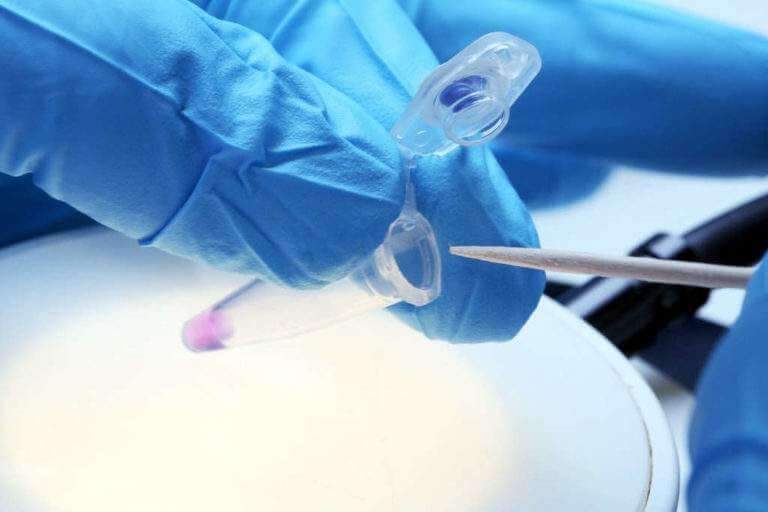Millions of Europeans have already ordered or even offered a DNA test to someone close to them in order to discover their ethnic origins, find a family member or find out about their predisposition to certain genetic diseases. But it is not without risks.
With a simple saliva sample, companies based in Europe, the United States or Israel, for the best known, offer for less than €100 to decipher your genetic heritage and give you your percentages of belonging to different ethnic groups in the world or your risk of developing cancer or another disease.
How are these DNA tests regulated in Europe? What are the risks and consequences of these so-called “recreational” products? Faced with the enthusiasm of consumers and the eve of Christmas shopping, the European Consumer Centre (ECC) France takes stock of the DNA tests sold on the Internet and gives some useful advice.
Are DNA tests authorised in Europe?
There are currently no European regulations on DNA testing. So-called recreational genetic tests offered on the Internet to consumers to find out the origin of their ancestors or to detect a disease are authorised in several European countries such as Denmark, Cyprus, Finland, Germany, Italy, Luxembourg or the Netherlands but prohibited in Portugal and France.
In France, a genetic test can only be carried out at the request of the court in the context of, for example, paternity research, or by a doctor for medical or scientific research purposes. Anyone who submits a DNA sample is liable to a fine of €3 750 (Article 226-28-1 of the Criminal Code) and companies offering this service are fined €15 000. “If you reside in France, despite the recurrent advertisements on the Internet and social networks, ordering a DNA test on the Internet is prohibited even if the company carrying out the test is based in a European country where this is authorised,” recalls Bianca Schulz, Head of the European Consumer Centre France.
What are the risks of genetic tests sold on the Internet?
By requesting the analysis of your DNA, you are transmitting to the laboratory sensitive information that is protected by law because it allows the identification of a natural person. In Europe, the General Data Protection Regulation, the famous RGPD which came into force in May 2018, has expressly introduced “biometric and genetic data” as two new categories of protected personal data. For consumers, this means that they have rights such as the right to information, modification, access and the right to forget their genetic data. For the company carrying out the DNA test, it has, among other obligations, to obtain the consent of the consumer, to inform him or her of his or her rights, of the length of time the data will be kept, and also to secure the storage of the data.
“The GDMP protects Europeans and is binding on laboratories, even those based in third countries, which offer DNA tests to European consumers. In order to avoid the risks of commercialisation or hacking of the DNA database, we recommend that anyone who has used a DNA test on the Internet should ask the laboratory to delete their data,” explains Bianca Schulz.
Possible errors
Other risks, not the least of which is the misinterpretation of the results of a DNA test carried out to find out one’s predisposition to develop certain hereditary pathologies. The craze in Europe for knowledge of one’s genetic heritage has led to fears of hasty interpretation due to a lack of sufficient information on the reliability of the diagnosis.
In view of the constant evolution of medical and genetic research and the personal factors of the applicant not taken into account at the time of the test (lifestyle and hygiene, family history, environment, etc.), the same results could be interpreted quite differently in a few years’ time. It is therefore important to remain critical and cautious about the results received and to discuss them with a doctor.
Finally, there are important psychological consequences when faced with the results of a genetic test that would reveal a family secret, non-paternity or filial relationship. This is the paradox of these so-called “recreational” products which are based on an unlimited “right to know” but which are risky for the consumer. On the eve of the festive season, let’s hope that Santa Claus, whose ethnic origin is 100% imaginary, knows how to sort out the gifts!
Advice if you buy a DNA test for a relative who lives in a country where this is allowed:
– Make sure that the website or mobile application that offers these genetic tests is reliable and serious, do not hesitate to contact customer service to test it.
– Read carefully the information given by the laboratory on how the test works, its analysis procedures…
– Consult the information on the laboratory’s personal data protection policy: how will the genetic data be stored? Where will it be stored? For what use? Will it be transmitted to third parties?
– Never give your consent to any further use and re-evaluation of genetic data.
– Please note that you have a 14-day right of withdrawal for any purchase made online. So take some time to think about it!
– Before sending a DNA test, you should check the type of results offered. You can choose to exclude certain types of results.
– If the results you receive concern the health of your loved ones, advise them to contact their doctor to request a medical interpretation with regard to their history, hygiene and lifestyle and the state of current scientific research. Be careful with these results and any recommendations that may be given on diet, lifestyle, etc… It is advisable to discuss them with a doctor.
– Do not hesitate to ask the company to delete the data once the results are received.

